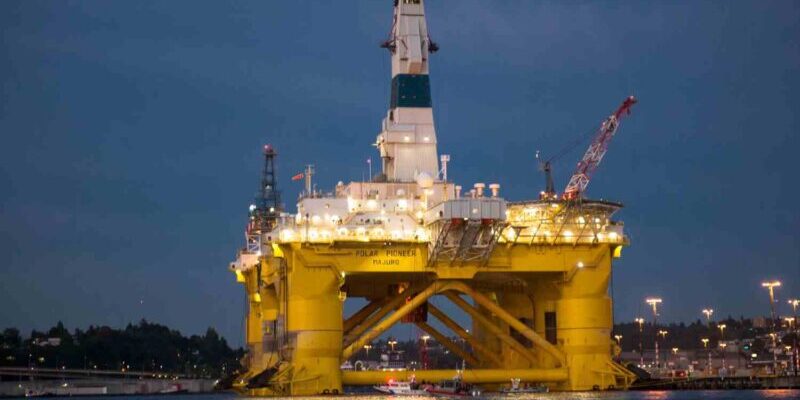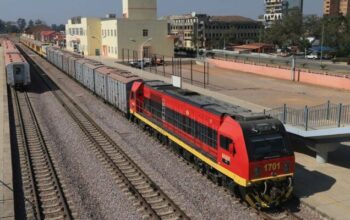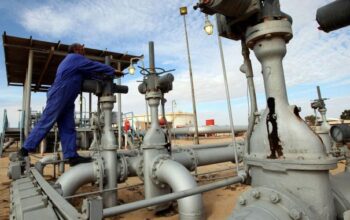Angola’s hydrocarbon market has seen rapid expansion since initial discoveries of oil and gas in 1955. As global energy majors flocked to the market and the government aligned relevant state actors with the burgeoning industry, progress across the entire energy value chain kicked off.
In 2023, the country’s standing as an E&P hub has been solidified even further owing to a variety of reasons from proven resources to attractive investment policies to location.
Proven Hydrocarbon Plays
With over 9 billion barrels of crude oil reserves and 11 trillion cubic feet of natural gas, Angola’s proven hydrocarbon resources make the country an attractive destination for E&P companies.
Currently, the country produces just over one million barrels per day, with the majority of output derived from the offshore fields of Cabinda and the Lower Congo Basin.
Other projects such as the TotalEnergies-led Cameia-Golfinho deepwater development in Block 20/11 and Block 21/09; the Ndungu and Aogo fields in Block 15/06; and the Azul-1 deepwater exploration well in Block 23 all showcase the potential for large-scale E&P projects, thus positioning the country’s position as an E&P hub. As other projects are launched and come online, Angola is set to supply not only the domestic market but the regional market too.
Favorable Investment Climate
Over the years, the Angolan government has implemented a series of regulatory reforms aimed at improving the investment climate across the oil and gas industry.
With transparency and attracting new capital at the fore, these reforms have paved the way for new players to enter the market and existing operators to reap high returns on investment.
Notable policy changes include the establishment of the National Oil, Gas and Biofuels Agency (ANPG) in 2018; the implementation of the Private Investment Law in 2018 – amended in 2021; the completion of the Investment Policy Review in 2019 and the launch of a revised Hydrocarbon Exploration Strategy 2020-2025.
Meanwhile, Angola’s favorable investment climate is enhanced further through the government’s commitment to opening the upstream market for foreign participation. In 2019, for example, the country launched a six-year licensing round to incentivize investment and E&P participation. With these reforms in place, Angola’s attractiveness as an upstream play continues to drive new activity, thus consolidating its position as Africa’s E&P hub.
Strategic Location
Angola’s position on the West Coast of Southern Africa makes it an ideal location for oil and gas exploration and production as well as for intra-African trade and exports.
With the country’s offshore fields easily accessible from major shipping lanes, as well as the establishment of several Deepwater ports that can handle large oil tankers, Angola is well positioned to export oil and gas to both international and regional markets.
What’s more, recently announced regional networks aim to capitalize on the country’s location as well as close proximity to high-demand markets in Africa.
These include separate bilateral agreements signed with Zambia, the Democratic Republic of the Congo and Senegal for oil and gas supply; pipelines such as the Angola-Zambia Oil Pipeline; and networks such as the Central African Pipeline System. Coupled with advances in the downstream market such as the launch of three new refineries, Angola is set to consolidate its position as a regional energy hub and major exporter.
Established Industry
Angola’s standing as an E&P hub is largely due to the country’s established oil and gas industry offering a long history of E&P activity. In addition to the presence of many global energy majors including TotalEnergies, Chevron, Eni and bp, among others, the government has structured the industry in a way that makes it more robust and competitive.
With its national oil company Sonangol transitioning from regulator to a competitive upstream player; priority given to infrastructure development; and long-operating projects inviting new technology and skills, Angola’s established industry has positioned the country into an energy hub centered on expansion.
Skilled Workforce
Notwithstanding the country’s success in attracting global players, kickstarting large-scale developments and exporting oil and gas globally, Angola’s position as an E&P hub can largely be attributed to the government’s focus on scaling up the domestic workforce and associated market.
Through a number of training and skills transfer initiatives, programs to improve capacity building and technological centers put in place, the country has reduced the reliance on the import of skilled personnel and the advancement of the domestic industry. As such, Angola’s position as an E&P hub is not only based on the international players in the market, but is being driven by the local population.
![]()




